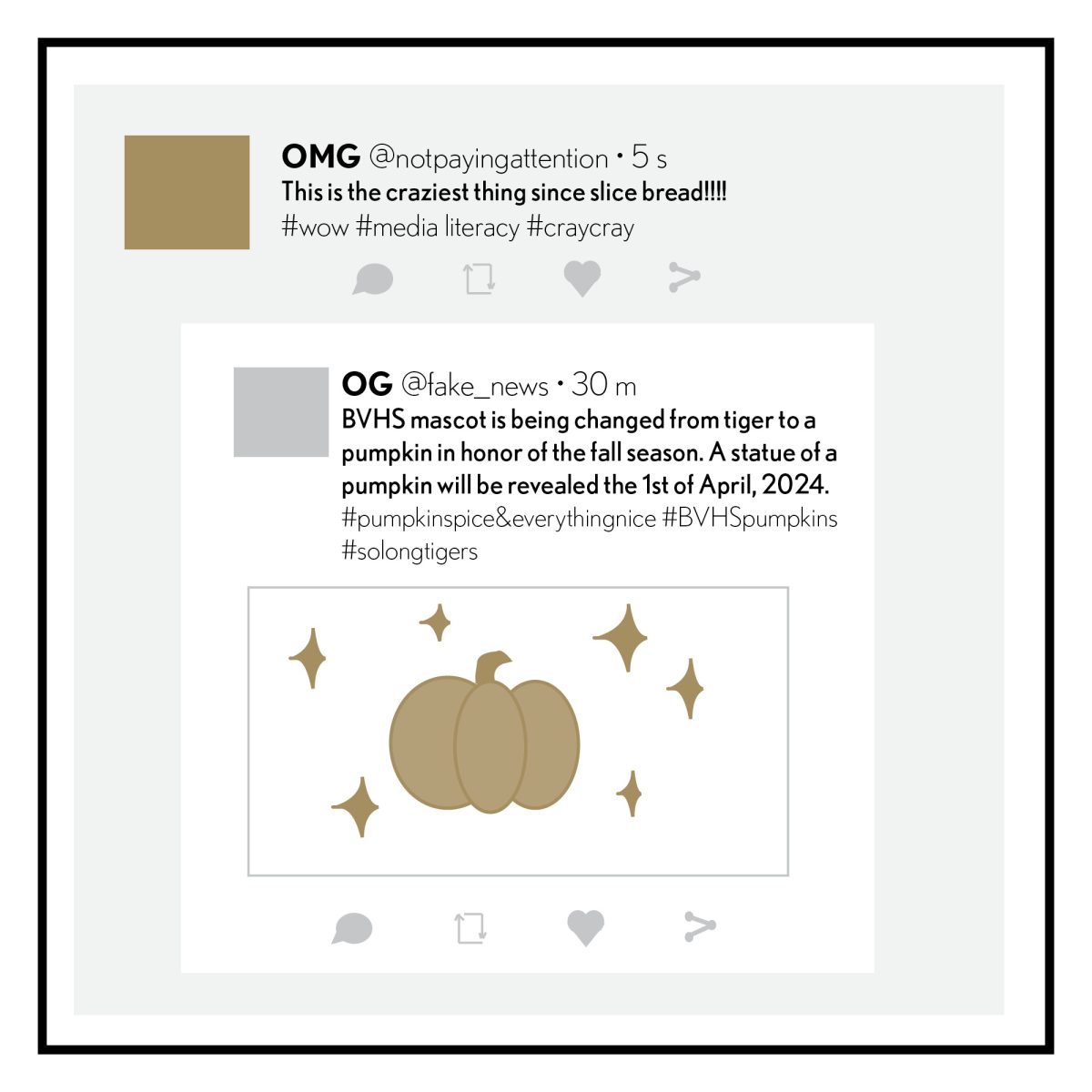Misinformation is everywhere. It is impossible to go onto social media without scrolling past infographics with misleading statistics, false historical facts, or podcasters simply lying. Sometimes, the information is so egregiously incorrect that I have to laugh. However, when the deception is hard to spot, it gets dangerous.
Most students at BVHS have learned how to find reputable sources and why you cannot trust everything you see on the internet. Internet literacy was something that was stressed in my middle and elementary school years. Still, as I mindlessly scroll on Instagram, I am not always actively checking to see if the information I am consuming is correct. That is when I, and millions of other people, have become a potential target for misinformation.
Misinformation is not innocuous and has very real impacts on the world. With posts about the Israel-Hamas conflict at an all-time high, the misinformation is rampant. According to AP News, false claims such as Ukraine supplying weapons to Hamas, Qatar threatening to shut off natural gas supply, and North Korean leader Kim Jong Un blaming Joe Biden, current U.S. president, for the Israel- Hamas conflict have all been spread about the internet. The public relies on social media for information and to inform their opinions. This public opinion controls the ways governments act and respond to current events; if the information is incorrect, many actions are without a fair basis.
Misinformation on social media spreads because of the rapid decisions people make to share their opinions on a tweet or to their Instagram story. Even if everyone was always actively checking for information that could be incorrect, misinformation would still diffuse because of the way social media functions.
Social media wants the attention of its users for as long as possible, so it only shows content in which users are personally interested in. These algorithms create echo chambers, which only show one perspective. According to a 2020 study from the National Library of Medicine, if a person finds a message which has a favorable group consensus and aligns with their past beliefs, they are more likely to share it. These echo chambers are the perfect breeding ground for misinformation with insular viewpoints which validate facts even if they are incorrect.
The connection between social media and misinformation is undeniable. It is essential that everyone who uses social networks be on guard when topics revolving around wars, politics, conspiracies, science, or recent current events are presented. The most effective way to reconcile this issue is to get out of biased circles of information and to reach information from more than what your algotherm presents to you. Make an active effort to expand your viewpoint and follow a variety of creators, despite own political biases.




